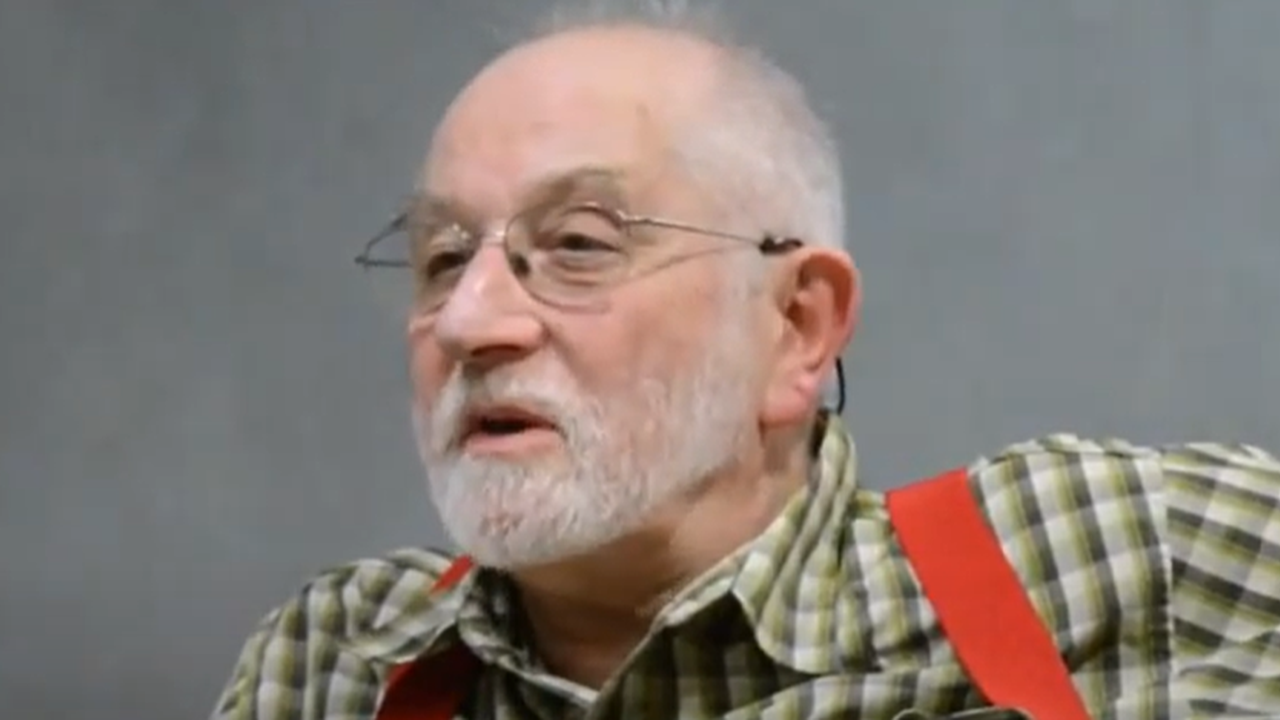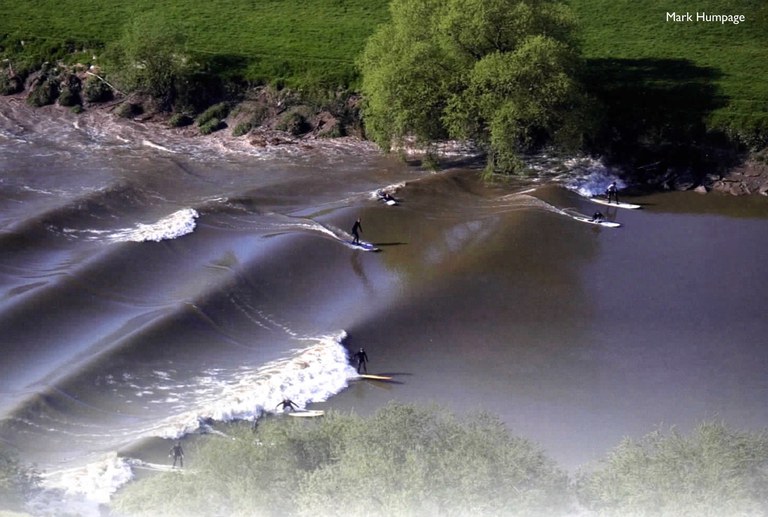Michael Berry: Chasing the dragon: tidal bores in the UK and elsewhere
Colloquia
- Speaker
-
Michael Berry
University of Bristol, UK - When
-
2018/10/05
17:30 - Place
- DIPC
- Add to calendar
-
iCal

University of Bristol, UK
In some of the world's rivers, an incoming high tide can arrive as a smooth jump decorated by undulations, or as a breaking wave. The river reverses direction and flows upstream. Understanding tidal bores involves
- Analogies with tsunamis, rainbows, horizons in relativity, and ideas from quantum physics;
- The concept of a 'minimal model' in mathematical explanation;
- Different ways in which different cultures describe the same thing;
- The first unification in fundamental physics.

Prof. Berry's web page
Wikipedia article
About the speaker
Sir Michael Victor Berry, FRS (born 14 March 1941), is a theoretical physicist who thinks in pictures and whose lectures are strongly visual. He is known for his research in borderlands between theories: classical and quantum, rays and waves.... His emphasis is on geometrical singularities such as ray caustics and wave vortices. Michael discovered the geometric phase, a phase difference arising from cyclically changing conditions with applications throughout physics, including optics and condensed matter. He delights in uncovering down-to-earth or dramatic and sometimes beautiful examples of abstract mathematical ideas: the arcane in the mundane. Examples are mathematical singularities in rainbows and the dancing lines at the bottom of swimming pools; the twists and turns of a belt that underlie the quantum behaviour of identical particles; a laser pointer shone through bathroom window glass to demonstrate abstract aspects of wave interference; and oriental magic mirrors illustrating the mathematical Laplace operator.
Michael has received numerous awards, including the Maxwell Medal and the Dirac Medal of the Institute of Physics, the Royal Society's Royal Medal, the London Mathematical Society's Pólya Prize, the Wolf Prize and the Lorentz Medal. He is a member of several national academies, serves on scientific committees of various institutes and was knighted in 1996.
